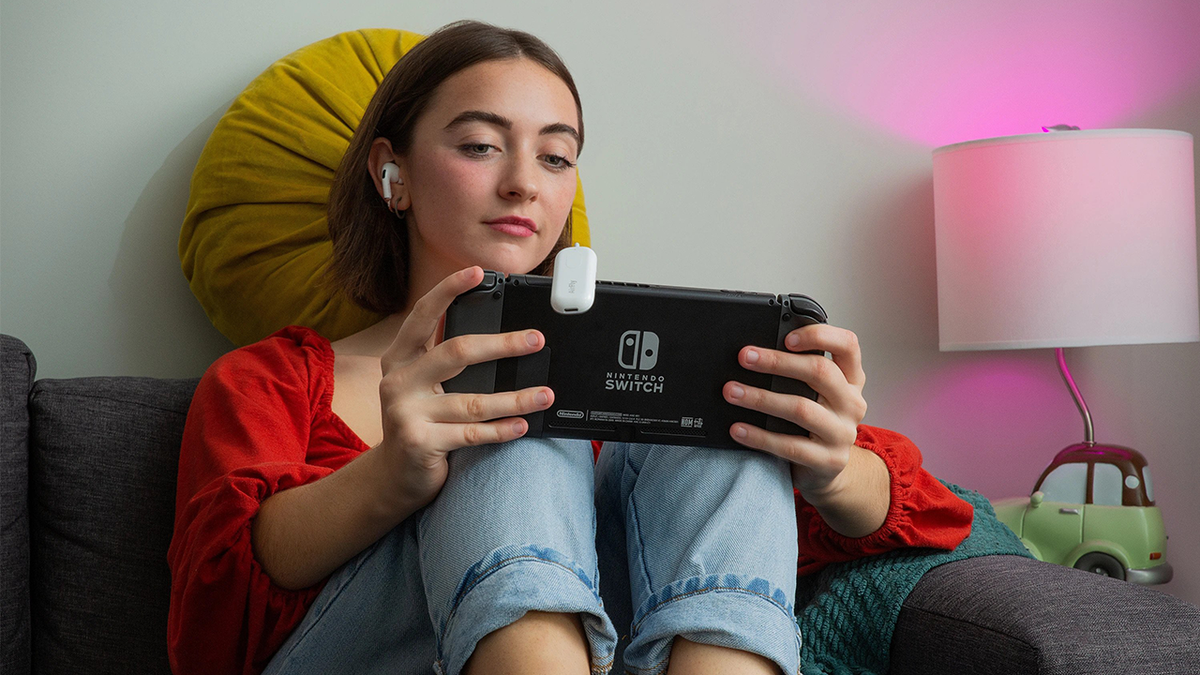
Top product: Hori Split Pad Pro | $ 40 | Amazon
The thing that is so appealing about that Nintendo Switch is its flexibility. While other modern consoles are literal behemoths that will only move if you correctly guess their name, the Switch is custom-built for any gamer. Whether you like playing at home or on the go, Nintendo has you covered. On a personal level, I only play the thing undocked. As much as I love the idea that it can plug into a TV, I like being able to take it on the go or play it in bed much more. The idea of a totally portable console speaks to me.
That got me thinking: what would it take to turn the Nintendo Switch into the ultimate portable console? Let’s say you were really committing to this thing as a handheld, or at least as a setup you trek around. What kind of buffs would you need to really get the most out of it? The obvious answer here is “Just buy a Switch Lite,” but your options are limited there. You can’t detach the Joy-Con, meaning you lose some of the versatility that comes with tabletop mode. Instead, we want to create a versatile portable system that still maintains all the normal functionality of a Switch while solving its shortcomings. After all, there are so many Switch peripherals out there that fill all sorts of gaps that the console has.
After months of combing through officially licensed and third-party Switch peripherals, I’ve cobbled together the ideal portable Switch console … I think. If nothing else, what I’ve done is pulled a variety of peripherals that solve any problems a player would run into when using the Switch exclusively on the go. That includes everything from battery woes to the system’s limited audio options. Here’s the ideal Nintendo Switch. You may not like it, but this is what peak performance looks like.

Problem: Let’s kick things off with controllers. The Joy-Con that come with the Switch are perfectly fine for casual play. However, those who plan on using the Switch as a hardcore system know that they don’t cut it. They’re tiny, lack a proper D-pad, and have a serious drift issue. To get the most out of your consoles, you’ll want to upgrade to a more creative controller setup. The official Pro controller is a good bet, but it doesn’t snap onto the Switch itself.
Solution: There’s no shortage of third-party controller options, but Hori’s Split Pad Pro solves a lot of those problems. It features a more traditional controller design with grips, but still snaps onto the Switch. On top of that, it has a real D-pad, rear triggers, and a Turbo function. While you could just use regular Joy-Con here, the Split Pad Pro offers an excellent solution for those who want the feel of a console experience without sacrificing the ability to hold it in your hands.
G/O Media may get a commission

Problem: Let’s deal with a really fundamental issue before getting fancy. If you’re moving your Switch in and out of a case, you need to take care of the screen. The Switch screen is unfortunately a little fragile. Even placing it in the dock can result in small hairline scratches on the system’s screen. If you’re going to commit to a fully portable life, you need to make sure you keep that screen safe and sound.
Solution: Like I said, nothing fancy here; you just need some good tempered glass. Your best option is amFilm’s Switch glass, which is cheap and easily adheres to your display. It’s thin and scratch-resistant too, all without hampering your ability to use the system’s touch screen. This product has over 76,000 reviews at Amazon and sits at a five-star rating, so you can do the math there.

Problem: There’s actually two issues we have to deal with here. One, the Switch’s kickstand isn’t the most robust way to prop up your system in tabletop mode. It’s flimsy and provides no flexibility for what angle you can place it at. As a totally separate issue, the Switch has a terrible battery life. Play a game like Breath of the Wild and you’ll need to plug in within three hours. What if there was a way to kill two birds with one stone here?
Solution: There is! There are a few tabletop stands on the market that’ll actually charge your Switch while you play. For this, I’m going to go with Nintendo’s official charging stand. It’s a simple little stand, but one that gives you a range of angles while charging your Switch. There are a few others on the market, but this small design makes it easy to setup and stow away when you’re done with it.

Problem: The Switch’s most glaring issue is its lack of Bluetooth support. That means you can’t use AirPods or any wireless buds with it. You need to have a big ol’ wire dangling around while you play. That’s especially a pain for people who want to use headphones while playing the system docked. In our “ultimate portable” scenario, we ideally want some sort of Bluetooth system. To accomplish that, we’ll need to go third-party or bust.
Solution: After leafing through tons of different options, I’m going with the Twelve South AirFly

Problem: Okay, so you’ve gotten every accessory you need to create the perfect portable Nintendo Switch. The only problem is … how are you going to carry this damn thing around now? With all the added dongles and buffs, your Switch is now too unwieldy to fit in your standard slim carry case. Carrying cases are a pain in general, because you have to strike a balance between something that’s not too big, but can still take around everything you need. And since we’re going big, we’ll essentially need a go-bag that fits every add-on with ease.
Solution: For this specific scenario, I’m going with iVoler’s mega Switch carrying case. It’s enormous compared to your standard Switch case, but that’s for good reason. It can fit the console itself, its bulky charger, a pro controller, and even the TV stand. On top of that, it has spots for 18 game cards and a mesh pouch where you can store an HDMI cable or headphones. There’s a lot of space in there, which means it’s one of the few cases that’ll really let you take your entire setup on the go.
.








